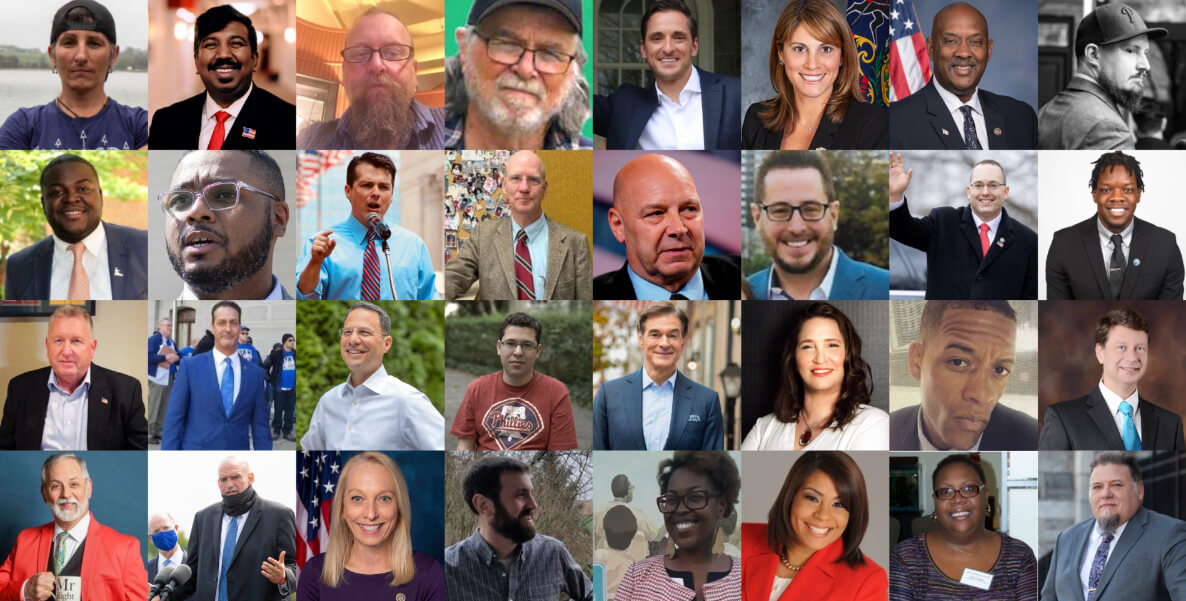Voting for someone is, essentially, hiring them to do a job. We, the voters, are tasked with reviewing candidates’ qualifications. We pay their salaries through taxes. We collectively decide if they get to keep their position after each term. Elected officials are meant to serve their constituents, work for us and create laws in our best interest.
However, if we do not understand the job we are “hiring’ for, how can we make the right choice for whom to vote for? How can we be good bosses if we don’t have accountability for our employees?
Our next opportunity to make our voices heard is the Pennsylvania general election on Tuesday, November 8.
There are many different positions up for election this year. That’s why Better Civics, a nonprofit dedicated to revolutionizing civic engagement through basic education, has teamed up with The Philadelphia Citizen to put together this voter guide that breaks down each office on the ballot and presents to you the candidates interviewing for the job.
Some of these offices you will be voting for are national (U.S. Congress and Senate), and the winners will represent you in Washington, D.C.
Some are statewide offices (governor, lieutenant governor), and these elected officials will represent you here in Pennsylvania.
This year, there is one other change: redistricting. Pennsylvania’s congressional delegation — our representatives in Congress — is dropping from 18 to 17 because the state’s population grew more slowly than many other states. Due to changing census numbers, local district lines also changed similar to congressional lines. Additionally, you may have a new state representative and state senator this year. Philadelphia’s growing population allowed us to gain one full new seat to represent us in Harrisburg.
To find out more information about redistricting, elections, and other essential concepts like filibustering and money in politics, check out Better Civics’ 2022 election toolkit.
Now, on to the voter guide. You can scroll along, or skip ahead to see who’s on the ballot for…
- U.S. Senate
- U.S. Congress District 2
- U.S. Congress District 3
- U.S. Congress District 5
- Governor and Lieutenant Governor
- Philadelphia City Council (opens in a new page)
- Philadelphia Ballot Questions
![]()
U.S. SENATOR AND REPRESENTATIVES
U.S. senators and representatives represent you in Washington D.C. Only one of our two Pennsylvania Senate seats is up for election this year, and since Sen. Pat Toomey decided not to run again, the field is wide open. Pennsylvania’s 17 representatives — including three in Philly — are also up for election this year.
U.S. SENATE (VOTE FOR 1)
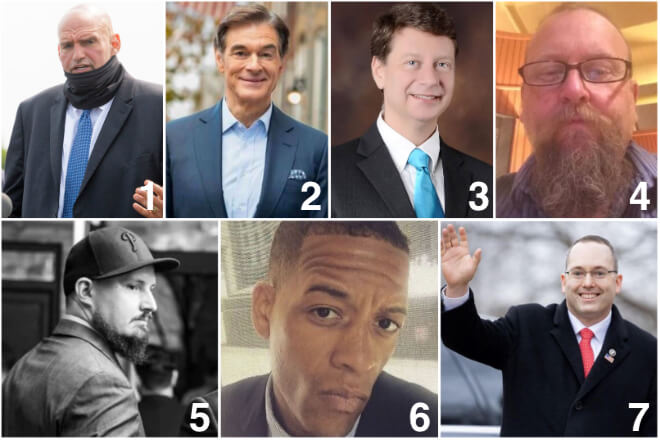
DEMOCRAT
JOHN FETTERMAN (1 in the photo above): The current lieutenant governor of Pennsylvania, Fetterman is one of the more progressive and best known candidates in the race. The issues he’s most passionate about are legalizing marijuana, protecting unions, raising the minimum wage, and reforming cities. On that latter issue, look to the redevelopment work he did in Braddock, where he served three full terms as mayor.
Fetterman has pledged not to accept any money from corporate PACs and to date, has raised the most money out of any primary candidate, mostly in small-dollar donations. Fetterman came under renewed scrutiny for his handling of an incident in 2013 when he confronted an unarmed Black man with a gun, but the man himself has said that he doesn’t blame Fetterman and that what occurred does not preclude him from winning the Senate seat. A few days before the May primary election, he suffered a stroke that took him out of the public eye for two months and has left him with auditory processing issues. His campaign has been criticized for being less than transparent about Fetterman’s health, all the while getting national attention for its online trolling of Republican rival Mehmet Oz.
REPUBLICAN
DR. MEHMET OZ (2): Dr. Oz, the former talk show host and surgeon introduced to the world by Oprah Winfrey, is best known for promoting pseudoscience and alternative medicine, claiming, for example, that green coffee extract was a “magic weight-loss cure.” (There is no medical proof of this.) After a highly competitive — and some called “weirdest ever” PA Senate primary race, after a recount that lasted weeks, former Bridgewater hedge fund CEO David McCormick conceded to Oz.
Turkish-born, Oz served in the Turkish Army and has dual citizenship. He received his medical degree and MBA from Penn, is a multimillionaire, and recently purchased a house in Pennsylvania (after long living in New Jersey). Oz is running as a staunch conservative who, in recent years, became anti-choice and pro Second Amendment. He was highly critical of fellow medical professional Anthony Fauci and has Trump’s endorsement.
GREEN PARTY
RICHARD L. WEISS, ESQ (3): An attorney with experience working for the federal government, Weiss supports criminal justice reform measures such as ending cash bail, decriminalizing drug use and sex work, and citizen oversight of the police. You can follow the campaign on Twitter.
KEYSTONE PARTY OF PENNSYLVANIA
DANIEL WASSMER (4): The Keystone Party of Pennsylvania was formed last year; it focuses on governmental reform. Senate candidate Wassmer’s campaign website appears somewhat unfinished, but includes a long list of positions including “pro-choice, pro-Second Amendment, pro-justice reform, anti-corruption, practical solution/consensus building, environmentally concerned, pro-medical options for drug users.” You can also follow his campaign on Facebook.
LIBERTARIAN
ERIK GERHARDT (5): The owner of ECG Carpentry and a construction worker since he was 16, Gerhardt wants you to know he is “not a career politician.” His platform proposes to eliminate most property taxes and institute a flat sales tax, address police reform by changing training practices, and end the war on drugs. His campaign website has more details.
INDEPENDENT CANDIDATES
QUINCY MAGEE (6): Magee is a Philadelphia native and an elected Elections Inspector for the City (Ward 44, District 15). According to his bio, he studied finance at New York University and international business at Harvard Business School, earned his PhD in Technology and Operations Management from Harvard Business School, a Doctorate of Laws from Harvard Law School, and a PhD in Electrical and Computer Engineering from Massachusetts Institute of Technology. He contributes research to policy work in economics, law and technology. His website provides an extensive resume of expertise and career accomplishments, but little in the way of policy positions except for his vision to create “a party with respect for the history of our country and a sustainable plan for the future of our inclusive representative government.”
EVERETT STERN (7): If his name sounds familiar, he is the HSBC whistleblower who exposed their money-laundering services for drug cartels and terrorist groups and was featured in Rolling Stone and the Netflix documentary series Dirty Money. Stern is the founder of the private intelligence agency Tactical Rabbit. His campaign cornerstone is national defense and security, with an emphasis on military preparedness and border security, gun rights, and “remaking the free market economy.” His call to “fight to save democracy” explicitly denounces extremists “both left and right.”
![]()
U.S. CONGRESS DISTRICT 2 (VOTE FOR 1)
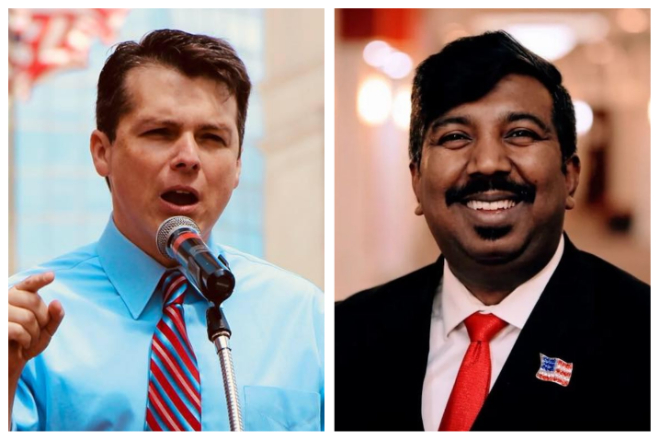
DEMOCRAT
BRENDAN BOYLE: First elected in 2014, Brendon Boyle is the current incumbent congressman from District 2. Boyle sits on the House Ways and Means Committee, where he has pushed for progressive policies such as an ultra-millionaire tax alongside U.S. Senator Elizabeth Warren and U.S. Representative Pramila Jayapal. Public service runs in the family: His brother is PA State Rep Kevin Boyle.
REPUBLICAN
HAROON “AARON” BASHIR: Bashir migrated to the U.S. from Pakistan in 2001, became a U.S. citizen in 2006, and worked as an accountant for the City of Philadelphia, adjunct professor and entrepreneur. Bashir ran unsuccessfully against Kevin Boyle for PA State Rep in 2020 and has said he’d model his governing style after Trump and Mike Pence. His focuses: lowering both taxes and government involvement in everyday people’s lives.
![]()
U.S. CONGRESS DISTRICT 3 (VOTE FOR 1)
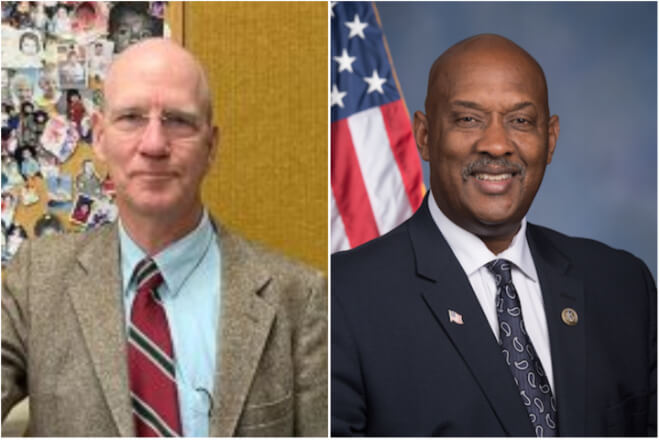
DEMOCRAT
DWIGHT EVANS: Evans is the current Democratic incumbent after winning a special election in 2016. Evans won the seat previously occupied by Rep. Chaka Fattah, after he resigned following a racketeering conviction. Before that, Evans was a PA state rep from 1980 to 2016. He graduated from the Community College of Philadelphia and La Salle University and worked as a teacher for the School District of Philadelphia. He is a member of Congressional Progressive Caucus and voted for Pres. Biden’s infrastructure bill.
REPUBLICAN
There is no Republican running for this office.
SOCIALIST WORKERS PARTY
CHRISTOPHER HOEPPNER: This SWP candidate had to fight to get on the ballot. Hoeppner is campaigning on working-class issues like raising the minimum wage, funding public works projects, supporting labor unions, comprehensive universal healthcare and abortion rights. He is staunchly anti-imperialist and champions free speech.
![]()
U.S. CONGRESS DISTRICT 5 (VOTE FOR 1)
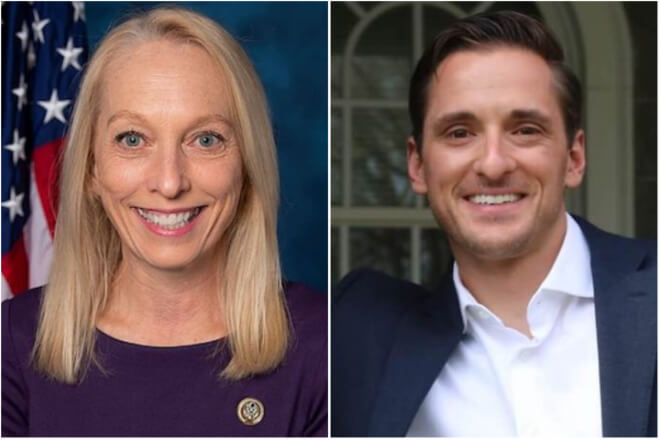
DEMOCRAT
MARY GAY SCANLON: Scanlon, the Democratic incumbent, is a graduate of University of Pennsylvania Law School and was sworn into Congress during a special election in 2018. She served as national Pro Bono Counsel at the law firm Ballard Spahr for 15 years before deciding to run for Congress. While in Congress, she has co-sponsored more than 400 bills and has introduced legislation to reduce student loan debt and reduce the cost of prescription drugs.
REPUBLICAN
DAVID GALLUCH: Galluch attended the University of Cambridge and the U.S. Naval Academy, then served during two deployments in the Navy. He currently works for Comcast in strategic development and lives in Newtown Square. Galluch believes that the government should empower individuals and supports tax policies that benefit entrepreneurs and small businesses. He has written that he was inspired by the career of Senator John McCain.
![]()
GOVERNOR + LIEUTENANT GOVERNOR (VOTE FOR 1 TICKET)
Governor Tom Wolf, the current top elected official in the state, has served two consecutive, four-year terms, which is the limit in PA, so this year we vote on a new governor. Gubernatorial candidates’ running mates are lieutenant governors, and therefore the two run on the same ticket. Tom Wolf’s lieutenant governor was John Fetterman, who is currently running for PA’s U.S. Senate seat.
Here are four really important things the governor gets to do:
Make executive orders and actions. Expanding health care to cover more low-income people or declaring a state of emergency are two examples.
Propose the state budget. For example, the governor could decide to increase the amount of money the state spends on education.
Appoint the heads of state agencies. These appointees—like the Secretaries of Education, Labor and Health—put laws into practice. So for example, the governor appoints the secretary of education.
Veto (or reject) laws that the legislature wants to pass. For example, last year, the legislature wanted to pass a law that would allow anyone to carry a concealed gun without having to get a background check or a gun permit. Governor Wolf vetoed the legislation and it didn’t become law.
The key responsibilities of the lieutenant governor include: Serving on boards related to military, community enhancement and emergency management; leading statewide fire safety initiatives; serving as the President of the Senate; and serving as the Chair of the Board of Pardons, which oversees the rights that someone who was in jail can be given back after they served their time
DEMOCRATS
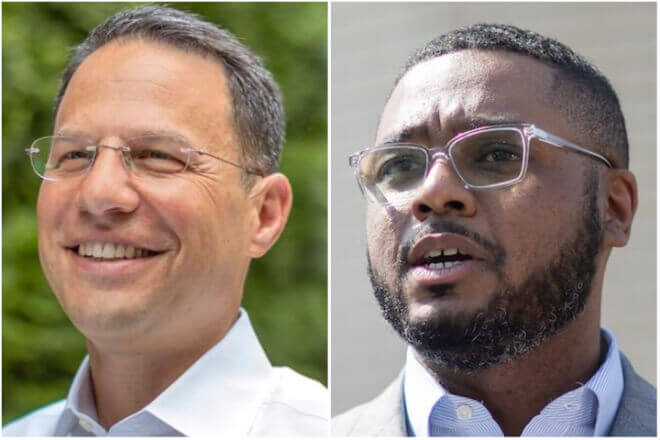
JOSH SHAPIRO: The current PA attorney general, Shapiro is an old hat at running for office and is running unopposed in the Democratic primary. He ran successfully and was re-elected to serve three additional terms as a State Representative from Montgomery County, ran successfully for the Chairman of the Board of Commissioners in Montgomery County, and served in that role for four years before being elected and then re-elected for a second term as attorney general.
He touts his experience investigating the Catholic Church’s cover-up of sexual abuse, defending Pennsylvania’s election result during the 2022 presidential election, and defending women’s reproductive rights. Though Shapiro is fairly scandal-free, he and his office were sued in early 2020 by Philly DA Larry Krasner about a $26 billion opioid settlement; the case was dismissed by the state Commonwealth Court. He has been endorsed by the Philadelphia Fraternal Order of Police (FOP).
AUSTIN DAVIS: As PA State Rep from Allegheny County, Davis has led a series of firsts: He’s a first-generation college graduate (University of Pittsburgh) and was the youngest and first Black vice chair of the Allegheny County Democratic Committee. When he was elected as a State Rep in 2018, he became the first African American to serve the 35th Legislative District. Davis sits on a number of House committees and is a member of the Pennsylvania Legislative Black Caucus, Climate Caucus, and the PA SAFE Caucus.
REPUBLICANS
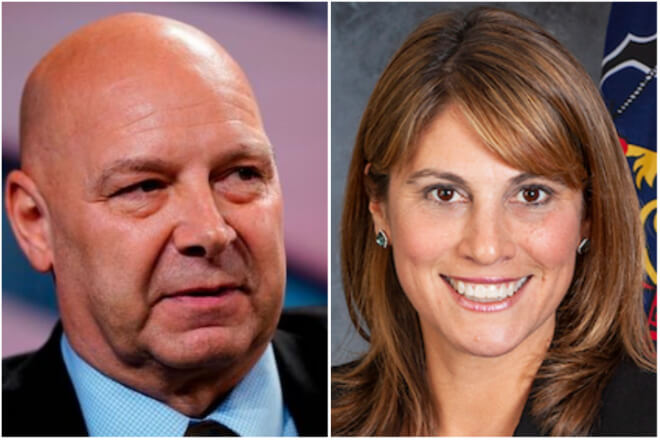
DOUG MASTRIANO: Mastriano, a state senator from Gettysburg, was a colonel in the U.S. Army and has been a leading national figure in the disinformation campaign claiming that Trump won the 2020 election. Mastriano was at the U.S. Capitol during the insurrection on January 6, 2020 and was subpoenaed by the Congressional committee tasked with investigating the insurrection. Mastriano led rallies against mask mandates and does not support the Covid vaccine. He is strongly anti-choice and has introduced legislation to ban most legal abortion. Affiliated with White Christian nationalists, he refuses to grant interviews or access to his campaign events to mainstream media.
CARRIE DELROSSO: Born in Scranton, Delrosso serves as the PA State Rep from the 33rd Legislative District in Allegheny County. Though she’s a relative newcomer, her 2020 election was impressive: She won an upset victory, unseating longtime Democratic State Rep and House Minority Leader Frank Dermody. Delrosso is an advocate for the Second Amendment, is anti-choice, and opposes increased state taxes. She supports affordable health insurance, low taxes and limits on regulation.
KEYSTONE PARTY OF PENNSYLVANIANS
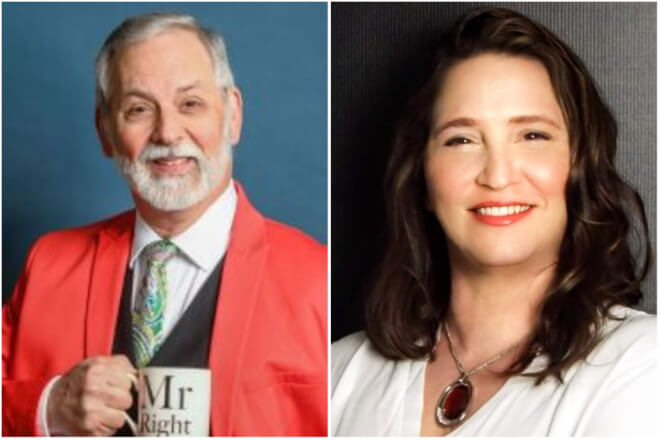
JOE SOLOSKI: With a background in public accounting and financial analysis, Soloski spent 30 years managing his accounting firm in Pittsburgh and served as a comptroller and financial analyst for firms in several industries. He supports reduced spending, decriminalization of marijuana, making the legislature part-time and instituting term limits, and ending state-controlled liquor distribution.
NICOLE SHULTZ: Shultz is the owner of Uglie Acres, a small business that sells homemade jams. A former leader in the Libertarian Party, she is now running alongside Joe Soloski. Shultz says that she will be a “voice of reason” as Lieutenant Governor, and believes in less government response, individual rights and private sector cooperation. She supports reproductive rights, pardoning non-violent offenders, and vows to encourage rehabilitation programs and services to address mental health issues.
GREEN PARTY

CHRISTINA “PK” DIGIULIO: A staunch environmental advocate, Digiulio, who has worked as a water protector near Marsh Creek State Park, opposes fracking and fossil fuel industry, supports immediate climate action and eliminating corruption in Harrisburg. She is also campaigning on gender and racial equality and improving public education. You can find her platform on Facebook and Twitter.
MICHAEL BADGES-CANNON: Retired teacher, grandfather and longtime environmental activist is against corruption, pro green jobs and pro union. He hails from Butler County.
LIBERTARIANS

MATT HACKENBURG: Hackenburg proudly affirms he is not a politician. He is an aerospace computer engineer and a former Army National Guardsman. As the official Libertarian candidate for governor, he is running to limit government intervention in as many ways as possible, including stopping public health mandates, eliminating many taxes, and decriminalizing “victimless crimes.” His platform advocates parental control of education and gun rights.
TIM MCMASTER: McMaster is an auditor and Audit Committee chair for Conewago, York County. He wants to eliminate: mass incarceration for nonviolent offenders, civil forfeiture, blanket immunity and property taxes. He supports the Second Amendment, legalizing recreational marijuana and sex work, and prohibiting “National Guard units from being deployed into active combat without a formal declaration of war by Congress.” His slogan: #MakePAFreeAgain.
![]()
PHILADELPHIA CITY COUNCIL
Philadelphia requires members of City Council to resign their seats in order to run for Philly mayor. So far, four councilmembers have resigned: Allan Domb (at-large), Derek Green (at-large), Cherelle Parker (9th District) and Maria Quiñones Sánchez (7th District). Council President Darrell Clarke called for a Special Election to fill these vacancies, wrapped into the November 8 election. Party ward leaders choose candidates for both councilmanic district-specific and at-large seats.
RECOMMENDED: Who’s running for City Council — the full guide
7TH COUNCILMANIC DISTRICT (VOTE FOR 1)
The 7th District councilperson will represent parts of North and Northeast Philadelphia, including Kensington, Feltonville, Fishtown, Hunting Park, Frankford, Harrowgate, Norris Square and Juniata Park.
DEMOCRAT
REPUBLICAN
LIBERTARIAN
- RANDALL J. JUSTUS
9TH COUNCILMANIC DISTRICT (VOTE FOR 1)
The 9th District consists of the Northeast and Northwest Philadelphia neighborhoods of Mount Airy, West Oak Lane, East Oak Lane, Olney, Lawncrest, Lawndale, Burholme and Oxford Circle.
DEMOCRAT
- ANTHONY PHILLIPS
REPUBLICAN
- ROSLYN ROSS
LIBERTARIAN
- YUSUF JACKSON
AT-LARGE COUNCIL SEATS (VOTE FOR 2)
The seven at-large members of City Council don’t represent specific neighborhoods — and at least two of them are required to be from a minority party or independent.
DEMOCRATS
- JIMMY HARRITY
- SHARON VAUGHN
REPUBLICANS
LIBERTARIANS
![]()
SPECIAL BALLOT QUESTIONS
When you vote on November 8 (or earlier, if you’re voting by mail), you won’t just vote for people. You’ll also be able to choose how you want Philadelphia city government to work. This year, all Philadelphia ballots will have two questions on them:
Ballot Question 1
Should the Philadelphia Home Rule Charter be amended to create the Department of Aviation and to transfer certain functions related to the operations of City airports from the other City agencies to the Department of Aviation?
Defining key terms: The Philadelphia Home Rule Charter is the city’s constitution: It outlines the structure and powers of local government. The Division of Aviation, a section of the Charter’s Department of Commerce, oversees the city’s airport facilities.
What your vote means: Voting “yes” means that you are in favor of amending the Charter to create a Department of Aviation distinct from the Department of Commerce. This Department would operate, maintain and improve airport facilities and set rates for the use of these facilities. It would be run by a Director of Aviation appointed by the Mayor.
Voting “no” means that the Division of Aviation will remain under the Department of Commerce.
Ballot Question 2
Shall The Philadelphia Home Rule Charter be amended to provide for a preference in civil service examinations for qualified graduates of Career Technical Education programs in the School District of Philadelphia?
Background: In order to get a job in city government, most applicants apply through a process called the civil service. Through this system, applicants are assessed based on tests related to the position.
What your vote means: Voting “yes” means that you are in favor of amending the City’s Charter to allow for preference of those who have graduated from Career Technical Programs in the School District of Philadelphia in the civil service application process.
Voting “no” means that the civil service application will remain based off of the examination with no prioritization of those who have graduated from Career Technical Programs.
You made it to the end! Congratulations on being a super citizen, and happy voting!



